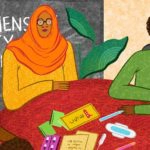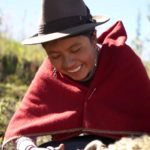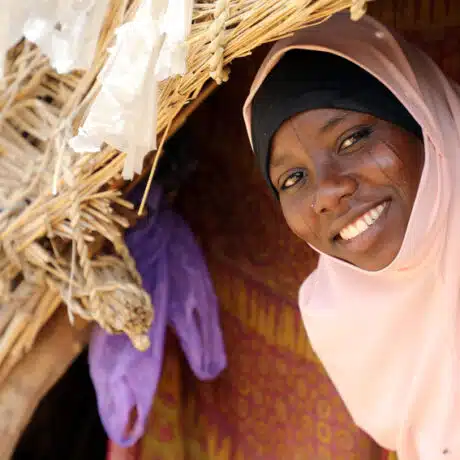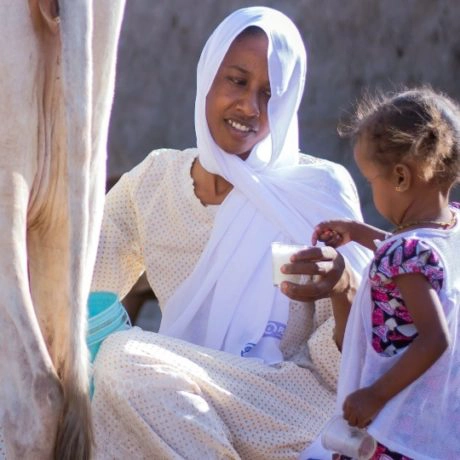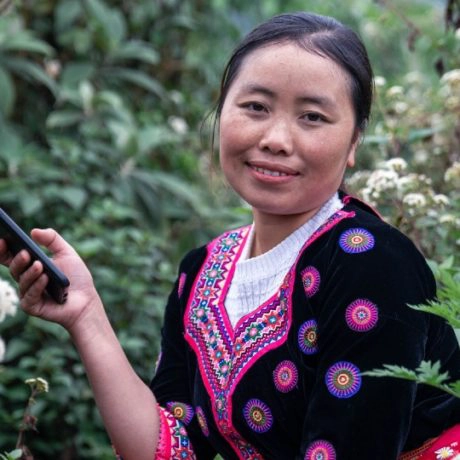News and Stories - Child marriage - 15 February 2022
South Sudan’s hunger crisis raises fears of more child marriages
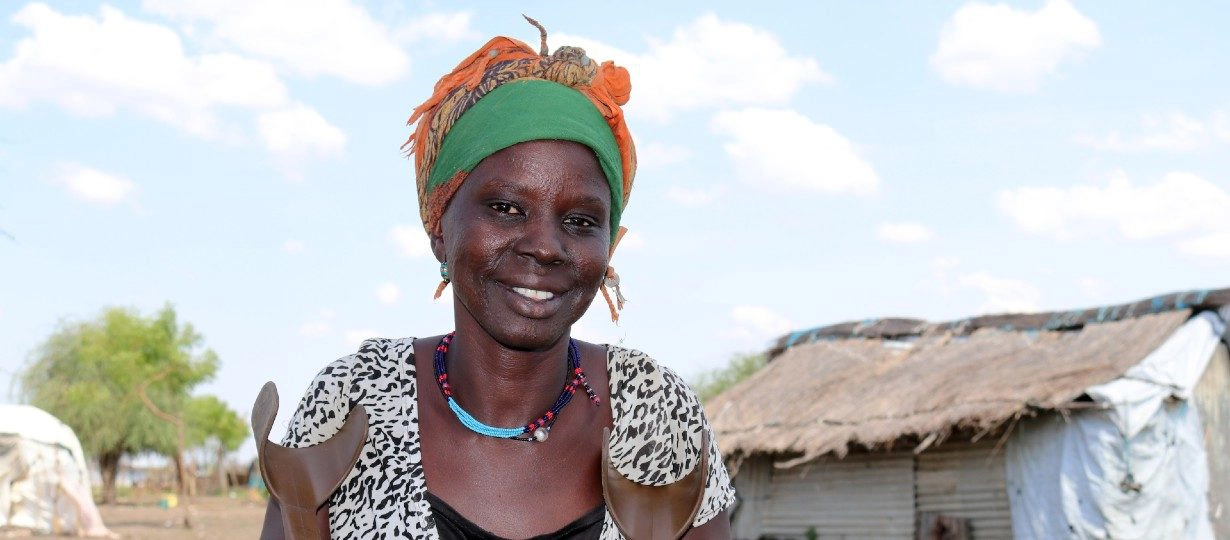
The crisis the world isn’t talking about
Ongoing conflict, extreme weather events and now COVID-19 in South Sudan has left around 60% of the population facing food shortages. Despite this, 30-year-old Ngaidok is committed to tackling the issue of child marriage in her community – she is well aware of the damage it can inflict on a girl’s life, having been forced into marriage herself at a young age.
Ngaidok lives in Pibor county, where hunger is particularly severe. This region has been heavily affected by conflict and suffered devastating flooding in August 2020 which destroyed people’s homes, crops and livelihoods.
When she was 15, Ngaidok was married to a man she first met on her wedding day. She quickly fell pregnant and now has six children to take care of.
“There was no food at all to eat. I could not give any food to my children as they needed baby food. Tears would roll down on my cheeks all the time. Even my breast milk was not enough, so each pregnancy frightened me a lot.”
Children, particularly girls, are most at risk
Child marriage is rooted in gender inequality and harmful social norms, so in a country like South Sudan, with deeply entrenched cultural practices and social norms linked to gender, the rates of child marriage are high. According to data by UNICEF, 52% of girls are married before 18 and around a third of all girls in South Sudan are pregnant before turning 15.
Child marriage is further fuelled by food insecurity. In times of crisis, families may resort to arranging marriages for their daughters. Marrying their daughters can provide a source of income used to buy urgently needed food to keep their families alive. Some families marry their children off in hopes of providing a better future for them. They see this as the only way to survive.
Ngaidok still faces many challenges each day, including living with a disability after she was injured during an attack on her village while attempting to save her life. She now uses crutches to walk which means she can no longer work in the field or go to bush to collect wood to sell.
After joining several gender-based violence awareness raising sessions run by Plan International, Ngaidok found her confidence again and started campaigning to end child marriage in her community. She often goes door-to-door to speak to community members about her story, the adverse effects of early marriage and about Plan International’s support for people facing food insecurity.
“I want to stand with girls and women so that they can raise their voices and do not marry until they are 18,” she says. “I want to see girls and women help each other to empower themselves, so that no one has to experience the same things that I faced.”
Thanks to her dedication, she has been able to convince several families in her community not to force their daughters into marriage. Although she did not get the chance to go to school herself, she makes sure that all her children attend school each day.
To help Ngaidok and her family cope with the hunger crisis, they are receiving food supplies from Plan International through the World Food Programme. The food has brought some hope into her life once again.
“If there is no food, it’s difficult to survive, as I am not able to work due to my disability,” Ngaidok explains. “I started smiling again when the food distribution began in our community. The food supplies are not only making me happier but also my neighbours.”
Plan International is urgently scaling up operations in Pibor and the surrounding areas, where we have been working with local communities to deliver food and treatment for malnutrition, alongside education programmes and child protection services to bring an end to domestic violence and early and forced marriage.
Right now over 811 million people globally are facing ongoing hunger, with 45 million people on the edge of famine. In countries like South Sudan and Ethiopia, families are at risk of starvation due to conflict, extreme weather events and COVID-19.
Will you help us support families with live-saving support and help prevent child marriages caused by hunger?
By donating today, your gift will be multiplied 15 times thanks to our partnership with the World Food Programme and will support families in this once in a lifetime hunger crisis.
* Any donations received that exceed what is needed for this emergency will be held in reserve to respond to future humanitarian emergencies. Thank you for your generosity.

